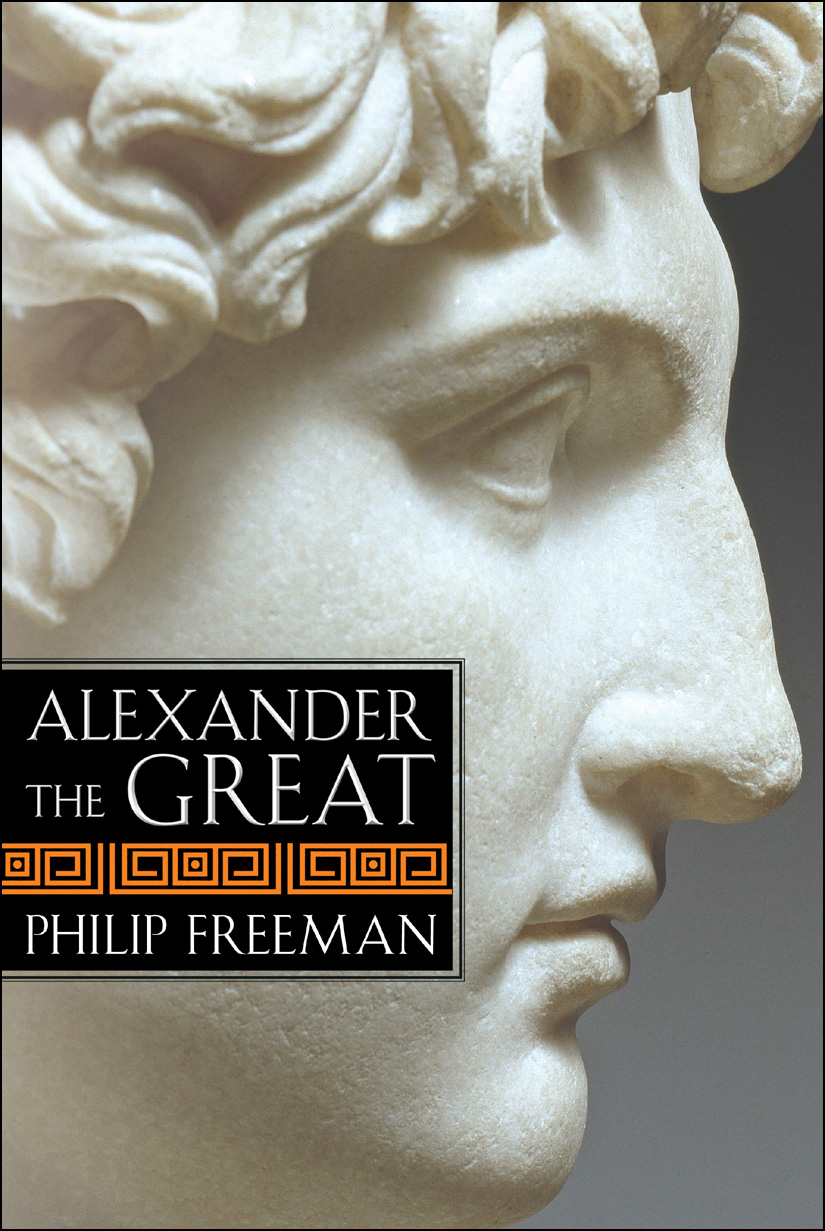
Alexander the Great
کتاب های مرتبط
- اطلاعات
- نقد و بررسی
- دیدگاه کاربران
نقد و بررسی

November 1, 2010
Historian Freeman (Classics/Luther Coll.; Julius Caesar, 2008, etc.) presents an accessible biography of the young Macedonian king.
The author's love for his subject infuses this footnote-free narrative with an unfussy breeziness, and readers are sure to come away from Alexander's story with an essential grasp of the details and understanding of his character. Freeman portrays the Macedonian people as having a shared language and culture distinct from Greek—to the Greeks' scorn but Macedonians' pride. Alexander's father was the "genius" on whom his son was able to establish his later empire, and the author wisely devotes some initial pages to Philips's masterly diplomacy, radical restructuring of his army and training of engineers. From his father, Alexander learned the importance of building alliances in the Greek world by marriage and immersion in the local religions. Conceived from his union with the strange, snake-loving daughter of the kingdom of Epirus, Olympias, Alexander was his father's pride—winning the magnificent but unmanageable horse Bucephalus out of cunning and bravery—as well as his scourge, demonstrating a troubling hubris. However, "the bull [was] ready for slaughter," as the oracle at Delphi proclaimed to the unknowing Philip, and when he was felled by a dagger, Alexander, at age 20, was swift to consolidate his own power. He won the loyalty of his troops, thanks to his moving rhetoric gained under his Greek tutors, and embarked on quelling rebellion among the Greek cities. His crossing of the Danube, a feat accomplished only Darius of Persia, amazed and inspired his men. From the destruction of Thebes through campaigns into Mesopotamia, Egypt and even India, Alexander was propelled over the next decade, driven by oracles, omens and what Freeman calls pothos, or longing, before he died, possibly by poisoning, still dreaming of his expedition into Arabia. In a readable, nonacademic narrative, the author capably sketches the powerful legacy of Alexander in spreading the culture of Greece that has proved the foundation for Western civilization.
A worthy addition to the seemingly endless flood of books on Alexander, including, recently, Paul Cartledge's literate Alexander the Great (2004) and Norman F. Cantor's opinionated Alexander the Great (2005).
(COPYRIGHT (2010) KIRKUS REVIEWS/NIELSEN BUSINESS MEDIA, INC. ALL RIGHTS RESERVED.)

January 1, 2011
Alexander the Great managed to conquer most of the known world before dying in 323 B.C.E. at age 33. The surprise is that he didn't die sooner. To defeat the Persian Empire, he led his troops on a ten-year campaign from his native Macedonia all the way to India. If the ancient accounts of his life are to be believed, daredevil Alexander risked death from battle, palace treachery, dysentery, and crossing vast deserts and mountains. How disappointing to die in bed in a palace in Babylon after too much partying. Alexander's empire quickly broke up, but Freeman (Classics, Luther Coll.; Julius Caesar) makes a persuasive case in his popular history here that the Hellenic tradition in successor states changed Western history. VERDICT Freeman ignores many conventions of modern historians: he never locates events in contemporary geography; if the classical source (always unreliable on numbers) says 100,000 soldiers, he generally accepts the number. Despite a persuasive epilog on the problems of sorting legend from fact, he rarely discusses his sources. It's a cliche-ridden biography, at times even reminiscent of the old Landmark Books some may remember from their childhood, likely to please neither the uninitiated nor the learned adult. [See Prepub Alert, LJ 9/1/10.]--Stewart Desmond, New York
Copyright 2011 Library Journal, LLC Used with permission.

December 15, 2010
Even before Alexanders death, in 323 BCE, his legend had accelerated, aided considerably by his highly effective skills of self-promotion. Classics professor Freeman has written a compact biography that avoids the pitfalls of romanticizing or understanding the personality of Alexander. It is a well-written, chronological narrative that allows Alexanders remarkable career and achievements to speak for themselves. Freeman doesnt ignore the thuggish aspects of Alexanders efforts, but he does correctly place them within the context of the rather nasty world of both Macedonian and Asian political and military struggles. He also pays ample tribute to Alexanders father, Philip, whose diplomatic and military skills molded the disparate hill tribes of Macedonia into the dominant power in Greece. Justifiably, it is Alexanders conquest of the Persian Empire and northern India that forms the bulk of the story and reveals his true genius, including his leadership, expertise in siege warfare, and ability to hold together what evolved into a huge, diverse army. General readers will appreciate this fine account of a man truly deserving of the title Great.(Reprinted with permission of Booklist, copyright 2010, American Library Association.)

























دیدگاه کاربران